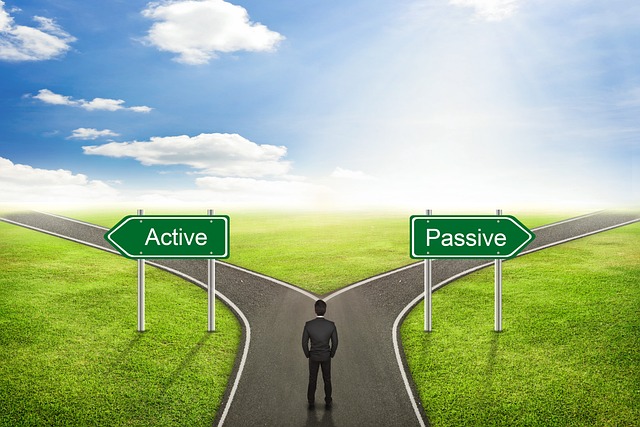The Importance of Self-Discipline in Achieving Personal Goals
Self-discipline stands at the core of any successful life. It’s the driving force that helps individuals convert aspirations into tangible achievements. Without self-discipline, dreams often remain just that—dreams. Think about it: how many times have you set resolutions or goals, only to see them fizzle out? Laying the groundwork for success requires hard work and tenacity, and that’s where self-discipline kicks in. It enables you to harness willpower, manage habits, and guide you through the ups and downs of your personal development journey.
In essence, self-discipline is like a muscle; the more you train it, the stronger it becomes. When daily distractions threaten to derail your focus, it’s self-discipline that keeps you on track. For instance, imagine a college student who has sworn to achieve academic excellence. Each day presents a choice—study for an exam or scroll through social media for “just a few minutes.” The decision to pull away from distractions and immerse oneself in study epitomizes self-discipline. Consequently, mastering self-discipline allows you to prioritize goals over temptations, which is paramount in personal growth.
How Self-Discipline Shapes Decision Making
The role of self-discipline in decision-making cannot be overstated. Effective decision-making requires clarity of thought and the ability to resist impulsive temptations. Take, for instance, managing personal finances. Self-discipline is crucial when deciding whether to save a portion of your salary or splurge on that new gadget. It demands the ability to foresee future benefits over immediate gratification, a critical aspect of personal development.
Moreover, strong self-discipline leads to better time management. When you approach decisions with a disciplined mindset, you naturally evaluate the importance of each task. Setting priorities becomes second nature. You’re more inclined to tackle challenging assignments ahead of low-priority ones, ensuring productivity and long-term success. The ability to delay gratification is a common theme in successful individuals’ lives. They tend to prioritize decisions that bring lasting satisfaction over fleeting pleasures, a habit cultivated through self-discipline.
Building Habits Through Self-Discipline
Building positive habits is arguably one of the most impactful aspects of self-discipline. Habits make up our daily routines, and they significantly influence our long-term outcomes. Studies show that it takes approximately 21 days to form a habit. For instance, imagine adopting a daily exercise routine. Initially, it might feel laborious and uncomfortable. However, with consistent self-discipline, sticking to that routine transforms it into an effortless part of your daily life.
Consider some successful personalities like Oprah Winfrey and Elon Musk. Their daily routines are filled with habits they’ve developed through self-discipline. They allocate time for meditation, exercise, reading, and work. By establishing these habits, they enhance their productivity and overall well-being. The process of habit formation isn’t instantaneous; it takes rigorous self-discipline to maintain these routines until they become second nature. This structured approach to daily habits streamlines your path to a successful life, making each day more purposeful and productive.
The Connection Between Self-Discipline and Resilience
Resilience is another facet of personal development that’s tightly woven with self-discipline. Throughout life, everyone faces setbacks and challenges. Your ability to bounce back from adversity largely depends on your self-discipline. Instead of succumbing to frustration or discouragement when confronted with obstacles, self-discipline propels you to develop strategies for overcoming them.
Take, for example, athletes who endure injuries during their training. It’s their self-discipline that keeps them adhering to rehabilitation protocols and maintaining a positive mindset despite temporary setbacks. Similarly, in personal or professional pursuits, individuals faced with rejection or failure often exhibit resilience rooted in self-discipline. They choose to learn from their experiences instead of giving in to despair. Thus, self-discipline and resilience work hand in hand, fortifying your ability to navigate life’s roller-coaster ride.
Self-Discipline in Relationships
Self-discipline also extends into the realm of interpersonal relationships. Building strong, healthy connections with family, friends, and colleagues requires effort, understanding, and—above all—self-discipline. For instance, consider how easy it is to give in to irritation when a loved one does something thoughtless. Self-discipline helps you pause and choose patience over annoyance. Responding thoughtfully often yields healthier relationship dynamics.
Moreover, effective communication is another area where self-discipline plays a crucial role. Studies indicate that strong communication skills dramatically enhance relationship health. Choosing to engage in open dialogues, listen actively, and express feelings constructively requires self-discipline. When you navigate your relationships with an awareness of this discipline, you create deeper, more meaningful connections. These bonds often translate directly into a more fulfilling life.
The Benefits of Self-Discipline on Mental Health
Mental health and self-discipline share a close relationship. Engaging in self-care rituals—such as regular exercise, healthy eating, and adequate sleep—often demands a high level of self-discipline. Engaging in these healthy behaviors creates a positive feedback loop; as you practice self-discipline in one area, it can influence other aspects of your life positively. For instance, maintaining a disciplined fitness routine often leads to improved mood and reduced stress levels.
Research consistently shows that physical activity releases endorphins, which enhance mood and promote mental clarity. By cultivating a disciplined approach to your mental health, you position yourself for greater resilience against stress and other emotional challenges. Journaling, mindfulness practices, and meditation also serve as powerful techniques rooted in self-discipline. By dedicating time to these activities consistently, you foster a stable mental state that withstands the ups and downs of life.
Self-Discipline: A Tool for Career Advancement
In the realm of professional development, self-discipline is a cornerstone of career advancement. Whether you are climbing the corporate ladder or running your own business, the ability to remain focused and committed to your goals defines your potential for success. Regularly setting and evaluating professional objectives fosters an atmosphere of accountability—a direct outcome of strong self-discipline.
Imagine a salesperson setting ambitious sales targets. With self-discipline, they consistently engage in networking, follow up with leads, and refine their sales techniques. The commitment to improve sets them apart in a competitive landscape. Furthermore, self-discipline facilitates continuous learning. Professionals who dedicate themselves to lifelong learning—whether through formal education or self-directed study—often reap the rewards in their respective fields. They experience greater opportunities for promotions, salary increases, and job satisfaction.
How to Cultivate Self-Discipline
Cultivating self-discipline isn’t an overnight feat. However, with consistent effort and targeted strategies, anyone can strengthen their self-discipline muscles. First and foremost, set clear, achievable goals. Breaking down larger objectives into smaller, manageable tasks makes them less daunting. Next, accountability proves invaluable. Share your goals with supportive friends or mentors who can provide encouragement and help keep you on track.
Moreover, tracking your progress holds you accountable, allowing you to celebrate small wins along the journey of personal development. Establishing a dedicated routine can also harness the power of self-discipline. Schedule specific times for tasks that matter most to you, be it exercise, studying, or working on a project. By anchoring your day around these prioritized activities, you make it easier to follow through.
Overcoming Obstacles to Self-Discipline
Despite the best efforts, obstacles will arise, challenging your self-discipline. Common challenges include procrastination, distractions, and negative self-talk. Identifying triggers leading to these obstacles is the first step in overcoming them. For instance, if you find yourself distracted by social media, consider setting specific times for engagement rather than allowing it to become a constant interruption.
Additionally, fostering a positive mindset is crucial. Negative self-talk can severely undermine self-discipline. Replace these detrimental thoughts with affirmations that encourage growth and resilience. Surrounding yourself with positive influences—people who share your goals and values—also greatly aids this journey. The support system plays a core role in maintaining motivation and accountability through difficult times.
Frequently Asked Questions
What is self-discipline, and why is it important?
Self-discipline refers to the ability to control oneself, make decisions, and stay focused on goals despite distractions. It plays a crucial role in achieving a successful life by enabling individuals to prioritize tasks, build habits, and overcome challenges.
Can self-discipline be developed over time?
Absolutely! Self-discipline can be cultivated through consistent practice and intentional strategies. Starting with small goals and gradually increasing their complexity can strengthen your self-discipline over time.
How does self-discipline relate to mental health?
Self-discipline positively influences mental health by promoting healthy habits like exercise, proper nutrition, and adequate sleep. Engaging in self-care practices regularly can enhance mood and resilience against stress.
What role does self-discipline play in relationships?
Self-discipline fosters strong interpersonal relationships by promoting effective communication, patience, and empathy. It helps individuals respond thoughtfully rather than react impulsively during conflicts.
How can I improve my self-discipline?
Improving self-discipline involves setting clear goals, establishing routines, holding yourself accountable, tracking progress, and identifying obstacles. Surrounding yourself with positive influences can significantly boost motivation and persistence.



